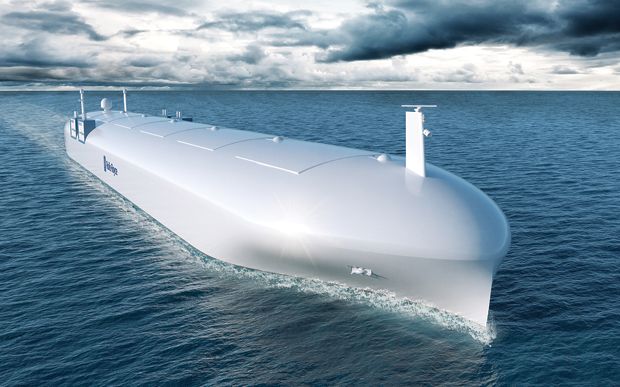
The IMO
has started work on how safe, secure and environmentally sound maritime
autonomous surface ships (MASS) operations may be addressed the
organisations instruments.
The Maritime Safety Committee (MSC) recently endorsed a framework for a
regulatory scoping exercise, as work in progress, including preliminary
definitions of MASS and degrees of autonomy, as well as a methodology
for conducting the exercise and a work plan.
For the purpose of the regulatory scoping exercise, MASS is defined as a
ship which, to a varying degree, can operate independently of human
interaction.
To facilitate its progress, the degrees of autonomy were organised
(non-hierarchically) as follows - it was noted that MASS could be
operating at one or more degrees of autonomy for the duration of a
single voyage:
• Ship with automated processes and decision support:
Seafarers are on board to operate and control shipboard systems and
functions. Some operations may be automated.
• Remotely controlled ship with seafarers on board: The
ship is controlled and operated from another location, but seafarers are
on board.
• Remotely controlled ship without seafarers on board: The
ship is controlled and operated from another location. There are no
seafarers on board.
• Fully autonomous ship: The operating system of the ship
is able to make decisions and determine actions by itself.
The first step involves a correspondence group, which will identify
current provisions in an agreed list of IMO instruments and assess how
they may or may not be applicable to ships with varying degrees of
autonomy and/or whether they may preclude MASS operations.
A second step will include an analysis conducted to determine the most
appropriate way of addressing MASS operations, taking into account,
inter alia, the human element, technology and operational factors.
IMO’s MSC, which met for its 99th session (16th-25th May), established
the MASS correspondence group to test the framework of the regulatory
scoping exercise agreed and, in particular, the methodology, and will
report back to MSC100 (3rd-7th December, 2018).
The group will test the methodology by conducting an initial assessment
of SOLAS regulation III/17-1 (recovery of persons from the water),
which requires all ships to have ship-specific plans and procedures for
recovery of persons from the water; SOLAS regulation V/19.2 (carriage
requirements for carriage of shipborne navigational equipment and
systems); and Load Lines regulation 10 (information to be supplied to
the Master).
If time allows, it will also consider SOLAS regulations II-1/3-4
(emergency towing arrangements and procedures) and V/22 (navigation
bridge visibility).
The committee also asked for proposals from member states and
international organisations relating to the development of interim
guidelines for MASS trials to be ready for MSC100.
The list of instruments to be covered in the MSC’s exercise includes
safety (SOLAS); collision regulations (COLREG); loading and stability
(Load Lines); training of seafarers and fishers (STCW, STCW-F); search
and rescue (SAR); tonnage measurement (Tonnage Convention); and special
trade passenger ship instruments (SPACE STP, STP).
Speaking at the opening of MSC99, IMO secretary general, Kitack Lim,
highlighted the importance of remaining flexible to accommodate new
technologies, and so improve shipping’s efficiency, “while at the same
time keeping in mind the role of the human element and the need to
maintain safe navigation, further reducing the number of marine
casualties and incidents.”
No comments:
Post a Comment